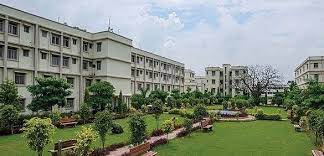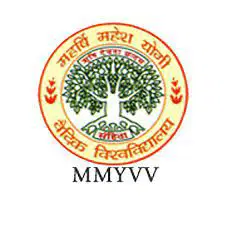The first step is to decide which field of study you want to pursue. You may choose to concentrate on a specific aspect of plant biology, such as genetics. A Ph.D. in this field will prepare you for research in the specific field, allowing you to take on the most challenging projects. It will also give you the chance to work with a wide range of species. Once you know which area of plant science you want to work in, you can apply for a Ph.D. in this area.
A Ph.D. in Plant Biotechnology is a doctoral-level degree program. It is designed to train students in all aspects of plant biology. It is a two-fold degree program that provides the education necessary to be a successful scientist. One aspect of plant biology is the study of the entire plant kingdom, while another is biotechnology. The two fields have many similarities, though the latter is more technical. Generally, students will take courses in biochemistry, Molecular Biology, Genetic Engineering, and Immunology.
Students enrolled in a Ph.D. program in plant biology are trained to conduct independent research. They are also taught about grantsmanship. This helps them find funding for their research. They may also work in a teaching assistantship, helping instructors in various classes and interacting with faculty members. Depending on the program, they may have the opportunity to supervise undergraduate students in the lab. In addition to a Ph.D. in plant biotechnology, students will have access to the plant biology community and scientific meetings, where they can present their findings.
Ph.D. in Plant Biotechnology Eligibility
Candidates who want to take admission in Ph.D. must have a post-graduate degree in Plant Biotechnology and its relevant discipline with at least 55% marks from a recognized university and must have passed the national level entrance examination or university level entrance examination. National level entrance exams like UGC NET / UGC CSIR NET / GATE / SLET or University entrance exams consist of written tests and personal interviews.
Benefits of a Ph.D. in Plant Biotechnology
One of the major benefits of a Ph.D. in plant biotechnology is the increased career prospects. With a biotech doctorate, you can find a job in a research lab, where you can conduct your own studies. If you're interested in becoming a university professor, you can also pursue this career path. Although you won't immediately be eligible for a professorship, you may find work in scientific publishing or as a business consultant.
Another benefit of a Ph.D. in plant biotechnology is the high salary. A Ph.D. in plant biotechnology can lead to a high-paying job in a research lab. Several companies are hiring plant science professionals. They are also well-versed in the latest methods and techniques in the field. And because plant science is an interdisciplinary degree, you can specialize in any of your chosen fields.
A Ph.D. in plant biotechnology gives students a well-rounded background in plant sciences. The program includes core coursework as well as electives. Graduates gain extensive research training. This allows them to be experts in the field of their choice. With their advanced training, these professionals can lead research groups, publish academic journals, and secure funding. Moreover, they can establish their own research firm and give presentations at academic conferences. This will enhance their career prospects and salary potential.
The Career and Job Opportunities of a Ph.D. in Plant Biotechnology
This degree provides students with a specialized understanding of plant biology and the technologies involved in its production. Graduates are usually placed in research and development positions in biotech companies or in government organizations. They may also work in the fields of biofuels, agrochemicals, and food and beverage research.
Careers are available in academics, government research, and the industry. Students who complete a Ph.D. in plant biology are well-equipped to conduct independent research. They are mentored in grant writing, and there are many opportunities for funding their work. Those who have previous teaching experience may consider becoming a teaching assistant, where they will help with different courses and work with professors. Some students may also choose to supervise undergraduate students in a research lab.
The Ph.D. in Plant Biotechnology provides many career opportunities in academia and the industry. The program prepares graduates to conduct original research in all fields of plant biology. Graduates may also choose academic careers, such as teaching or pursuing a Ph.D. in a biotech company. These positions are also ideal for people who wish to work with plants and want to contribute to society.
The Future Scope of Ph.D. in Plant Biotechnology
If you are looking for a Ph.D. in Plant Biotechnology, you have come to the right place. The demand for these professionals is increasing day by day. Many government organizations and companies are looking for these scientists. As a result, several technical colleges and universities offer this degree. This type of degree is expected to grow even further in the future. Moreover, plants have been a blessing to mankind and it is only right that we return the favor. And as a plant biotechnologist, you will be able to do so, helping to create new opportunities and industries.
The future scope of a Ph.D. in Plant Biotechnology depends on the number of industries that require such specialists. In the field of plant biotechnology, the major job prospects are in the biotech industry, agriculture, government, or research and development. Those who have a Ph.D. in this field may easily transition into non-research roles, such as regulatory affairs. In addition, some will work in the business end of biotech companies, while others will work in scientific publishing.
Graduates of this program can enter the fields of academia and industry. Career opportunities include research and development positions in biotechnology companies, governmental organizations, agribusiness, and policy. Those with a Master's degree can also get into a variety of positions, including those in the public sector and in government. While the future of this field is unclear, it is one that is rapidly developing and has the potential to change the face of agriculture.
Ph.D. Research Programme duration
The Ph.D. in Plant Biotechnology course is a minimum of 3 years and a maximum of 5 min duration. This depends on the university offering the course.
Fees for research program for Plant Biotechnology
The average fee for Ph.D. in Plant Biotechnology degree is between INR 50000 and INR 500000.
 5 Years
5 Years
 PhD
PhD
 Research
Research
































 back
back